
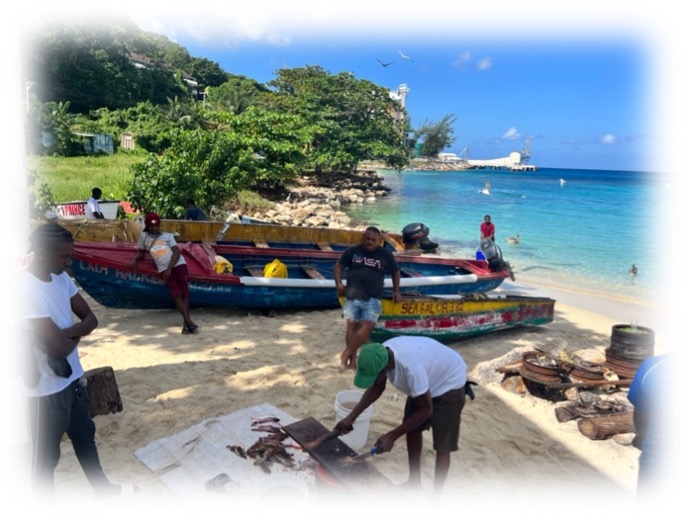
“The Delicate Balance Between Human Activities and The Environment is Tipping”
Discussing Climate Action—and Overcoming Hurdles—With Fellow Residents of St. Mary and St. Ann, Jamaica
February 7, 2024
Dr. Ren-neasha blake gilmore, IIE centennial Fellow 2023-2024
Climate change has increased the vulnerability of Caribbean countries like Jamaica to hurricanes, tropical storms, and heavy rainfall which often leaves communities flooded and lives and livelihoods in danger. These events adversely affect coastal and rural communities, who already have little access to technologies that could provide early warning systems and facilitate post-storm rebuilding. As part of its efforts to empower Fulbright alumni to take climate action, IIE selected Dr. Ren-Neasha Blake Gilmoreas an IIE Centennial Fellow for the 2023-24 year. With support from the Fellowship, Blake Gilmore is currently in Jamaica, working with fisherfolks, youth, vendors, and other vulnerable groups in rural communities to develop an information and communications technology (ICT) driven coastal resilience and adaptation framework in Jamaican communities. The project will utilize methodology and experience Blake Gilmore learned during her Fulbright to develop data-driven solutions through action and collaboration.
In her first blog entry of the year, Blake Gilmore summarizes her project and motivation for taking climate action in her home country of Jamaica.
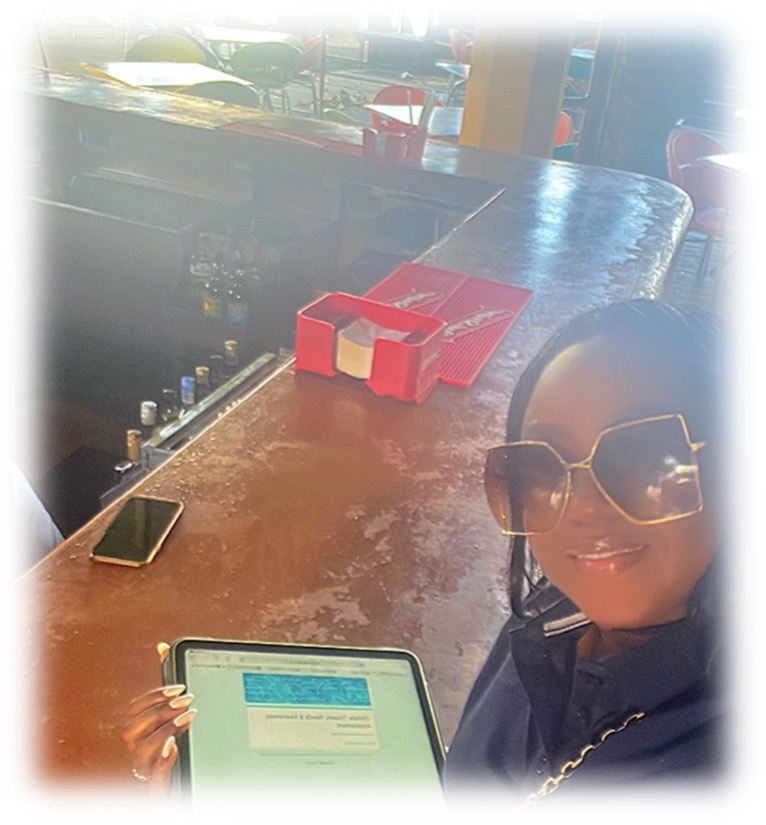
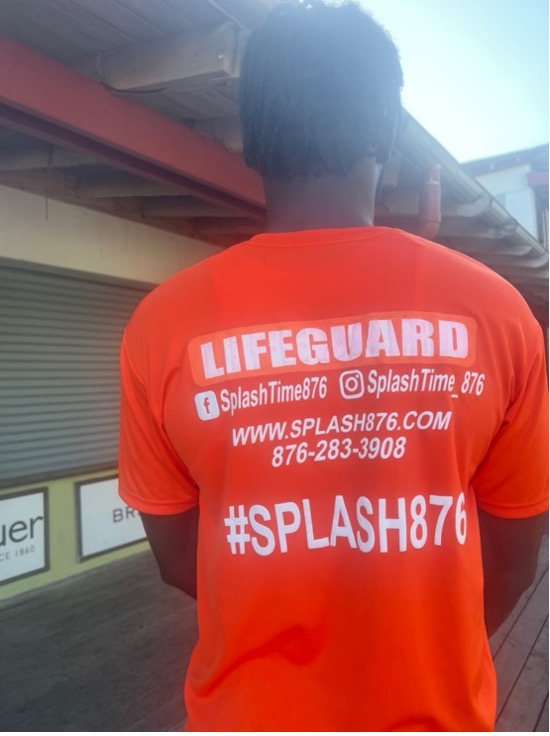
What steps did you take to begin your project?
In the face of accelerating climate change, coastal communities like those in Middlesex, Jamaica, find themselves on the frontline, grappling with the imminent threats posed by rising sea levels, extreme weather events, and changing ecosystems. The urgency to educate and sensitize coastal populations about these challenges has never been more crucial. The delicate balance between human activities and the environment is tipping, and it is our responsibility to equip coastal communities with the knowledge and tools needed to navigate this uncharted territory. This is where I come in.
Starting with forging connections with my colleagues in the area and conducting a needs assessment, I was able to engage fisherfolks, local artisans, water sports professionals, and staff in the entertainment industry along the coast. I didn’t want to only plan for the coastal participants; I wanted to plan with them. Hence, the needs assessment is mission-critical to every project area. All participants are enthusiastic about my project, and some have even volunteered to help with coordinating the training sessions.
Thanks to IIE, I have engaged more than thirty (30) residents so far, sensitizing them around climate change threats and educating them about ways to take resilient action. Moreover, I have engaged these residents on ways to use digital tools like their smartphones, tablets, and walkie-talkies to share information. Economic competition, however, is a significant barrier to residents freely engaging with the project and each other. A water sports respondent explicitly stated, “It’s about competition, so it’s hard to get everyone to even share information.” A fisherman in the Ocho Rios area echoed this observation a few weeks ago. Ultimately, I see this as a hurdle, not a roadblock.
How do you forge connections with local residents and communities?
When I enter the field, it is my duty to demystify the complex terms around climate change. This enables smoother conversations between the coastal residents. For example, in the needs assessment, I asked, “Are you aware of the term ‘climate change?’” This is a question to which respondents initially respond, “Yes,” but when I probed deeper, I quickly realized that this is an opportune moment to further educate and sensitize. Sensitization, or greater awareness, ultimately empowers residents to plan and take informed action. Already, I have found that providing comprehensive information about climate science, in lay terms, can effectively dispel misinformation and skepticism.
In my conversations, I’ve discovered that while climate change is seen as farfetched for some, it is actually an immediate threat for many, especially fisherfolk and food vendors. Fisherfolk noted the challenges of rougher sea conditions, rising water temperatures, and scarce fish supplies. Another respondent from the Port Maria coastal area—a local food vendor—shared her concerns about the economic disruptions associated with ongoing improper drainage systems, which are exacerbated by fluvial (river) and coastal floods. My project has given her a platform to voice her concerns and she expressed her eagerness to see tangible outputs for technology-driven solutions and possible intervention from local officials.
What kind of impact do you want to have on coastal communities in Jamaica?
My hope for this project is that climate change education will foster a sense of responsibility and stewardship towards the environment. The needs assessment encourages residents to examine the adverse effects of climate change on their local communities. Coastal inhabitants, once aware of the delicate ecosystems around them, are more likely to adopt eco-friendly practices like responsible waste disposal, sustainable fishing methods, and habitat preservation. Moreover, sensitizing these coastal communities in Middlesex, Jamaica involves not only understanding the threats but also learning how to adapt. By sharing strategies for climate-resilient infrastructure, early warning systems, and emergency preparedness, my project will equip individuals to safeguard their communities against the impacts of climate change.
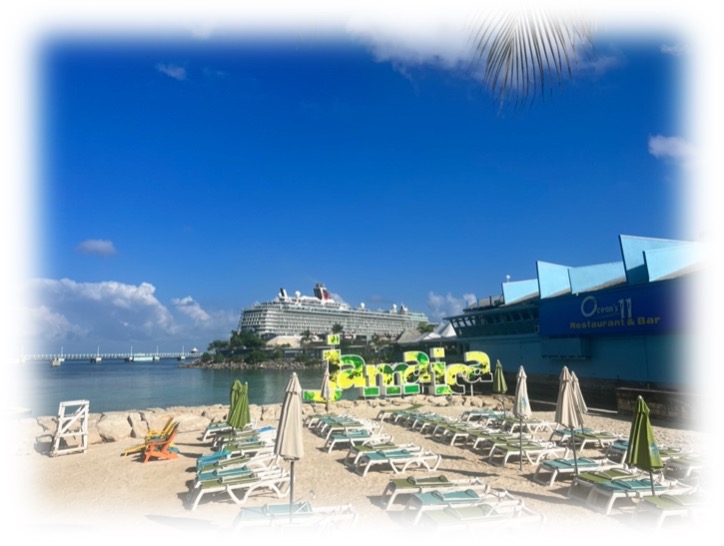
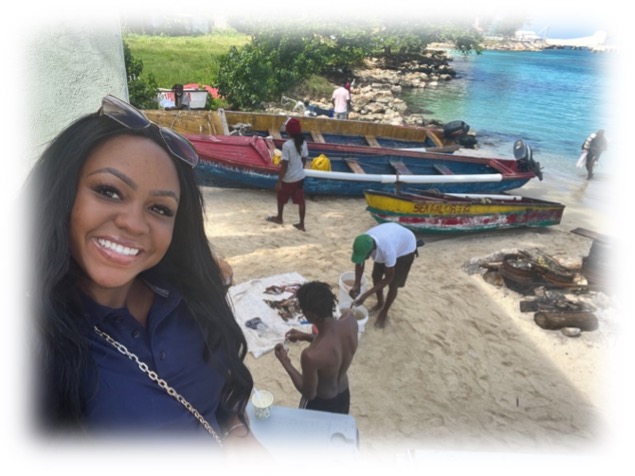
What’s Next?
Not only am I enthusiastic and optimistic about this work, but my project participants are open-minded and eager to see sustained solutions as well.
Named in honor of IIE’s Centennial and association with the Fulbright Program, the IIE Centennial Fellowship seeks to help enhance Fulbright as a life-long experience and recognize alumni whose work embodies the program’s underlining values of mutual understanding, leadership, global problem solving, and global impact.